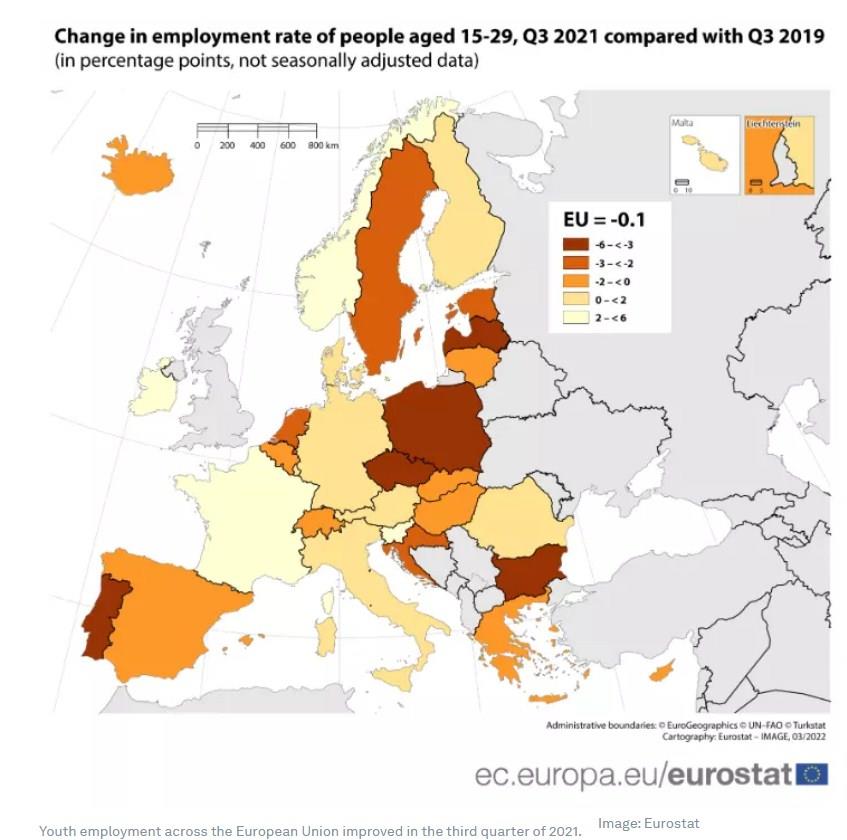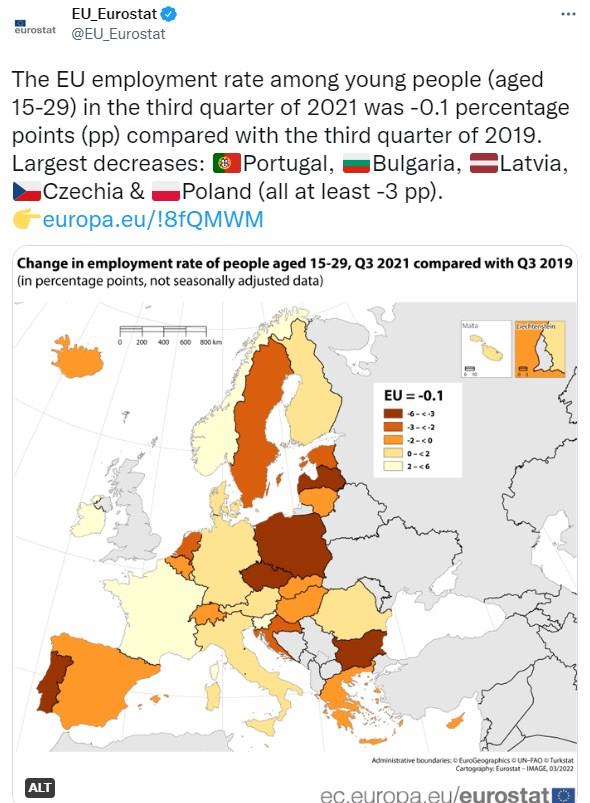by Victoria Masterson*
Youth employment in Europe is recovering from the impact of COVID-19 – but slowly, new figures suggest.
Eurostat, the European Union’s statistical office, says all 27 of its member countries recorded a drop in young people in work during the third quarter (July to September) of 2020, compared to the same period in 2019.
Among 15 to 29-year-olds in the EU, employment fell by 2.8 percentage points over this period.
But data for July to September 2021 shows a recovery, Eurostat says. The employment rate amongst young people for this period is only 0.1 percentage point below where it was at the same time in 2019.

Country trends in youth employment
For 16 of the EU’s 27 members, youth employment has still not fully recovered, however, and is still below where it was in the third quarter of 2019.
Portugal, Bulgaria, Latvia, Czechia and Poland saw the biggest falls in youth employment of at least 3 percentage points between July and September 2021, compared to the same period in 2019.

Ireland, France and Slovenia saw the biggest jumps in youth employment. These countries hired more young people than before the pandemic, reporting gains of at least 2 percentage points between July and September 2021, compared to the same period in 2019.
Young people globally have lost their jobs
Globally, the proportion of young people in work fell by 8.7% during 2020, according to the International Labour Organization (ILO), a United Nations agency which sets international labour standards. For adults, the impact was less severe, with employment falling 3.7%.
Work was already “precarious and insecure” for young people before COVID-19, the ILO says in its report, Youth Employment in Times of COVID. Now, “informality, inactivity and job insecurity” have all increased, it adds.
Youth employment solutions
To properly tackle youth joblessness, governments must learn lessons from the pandemic, the ILO suggests. This includes ensuring that government departments like health, labour and social affairs are working together and avoiding “one-size-fits-all” policies. Indicators like mental health should be monitored, the ILO says, and specific interventions are needed for young women, who are concentrated in sectors worst hit by the pandemic – like hotels, shops and food services.
In its June 2021 Statistical Brief on the youth labour market and COVID-19, the ILO also recommended encouraging entrepreneurs to create jobs for young people and getting more young people into education and training.
Other interventions could include giving young people more of a say in workers’ rights.
*Senior Writer, Formative Content
**first published in: www.weforum.org




 By: N. Peter Kramer
By: N. Peter Kramer
